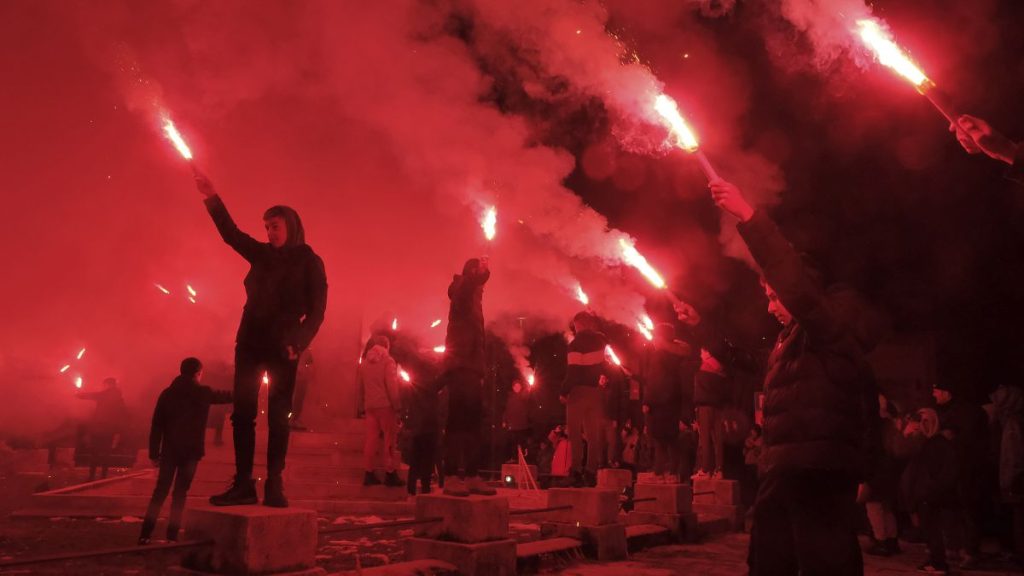The recent mass shooting in Cetinje, Montenegro, has ignited a wave of public outrage and protests, demanding accountability from top security officials. The tragic incident, which claimed the lives of twelve individuals, including friends and family of the perpetrator, has shaken the nation and fueled concerns about escalating violence and the efficacy of state institutions in addressing the issue. The attacker, a 45-year-old local man with a prior record of violent behavior and illegal weapons possession, initiated the massacre following a bar brawl. He retrieved a firearm from his home and returned to the bar, opening fire and killing four people before proceeding to other locations and taking the lives of eight more victims. The spree ended with the gunman taking his own life.
This horrifying event marks the second mass shooting in Cetinje in less than three years, amplifying anxieties about the prevalence of gun violence in Montenegrin society. The previous incident, occurring in August 2022, saw ten people, including two children, gunned down before the attacker was fatally shot by a passerby. The recurrence of such tragedies has raised serious questions about the adequacy of security measures implemented since the first massacre and the overall handling of the situation by law enforcement. Many citizens believe that police mishandled both situations and haven’t done enough to protect the public. Public trust in the authorities has eroded, leading to widespread calls for resignations and systemic changes.
Thousands of protesters have taken to the streets of Podgorica, the capital, and Cetinje, demanding the resignations of Interior Minister Danilo Šaranović and Deputy Prime Minister for Security and Defence Aleksa Bečić. They accuse the officials of failing to protect the population and hold them responsible for the tragic loss of innocent lives. Protest organizers, like Milo Perović from a student-led group, have publicly addressed the officials, emphasizing their failure to ensure public safety and urging them to step down. The rallies reflect a deep-seated frustration and a growing demand for accountability within the government.
The protests have extended beyond calls for resignations, encompassing a broader plea for stricter gun control measures and a “demilitarization” of the population. Demonstrators advocate for the destruction of illegal weapons, the implementation of higher taxes on gun ownership, and a moratorium on new gun licenses while existing ones undergo rigorous review under stringent criteria. The abundance of illegal weapons in the Balkan nation, with a population of around 620,000, is a significant concern that protesters believe needs urgent attention. The calls for stricter gun control resonate with the public’s anxieties about the ease of access to firearms and the potential for future violence.
The Cetinje massacre has highlighted the deep political divisions within Montenegrin society. The tragedy has exposed vulnerabilities in the state’s capacity to address the complex issues of gun ownership, violence, and social unrest. While the police maintain that the shooting was unpredictable and preventable, the gunman’s history of violent behavior and illegal weapons possession raises questions about the effectiveness of existing laws and enforcement mechanisms. The authorities have responded by announcing a new, strict gun law and other measures to curb illegal weapons, but the effectiveness of these measures remains to be seen.
The public’s demand for answers and accountability is palpable. Protest organizers like Maja Gardašević have voiced the collective grief and frustration, questioning why Cetinje has become a repeated scene of such horrific violence and why those responsible are not held accountable. The repeated tragedies underscore the urgent need for effective solutions to address the root causes of violence, improve security measures, and restore public trust in the government’s ability to protect its citizens. The protests reflect not only a reaction to the immediate tragedy but also a deeper call for systemic change and a more secure future for Montenegro.

